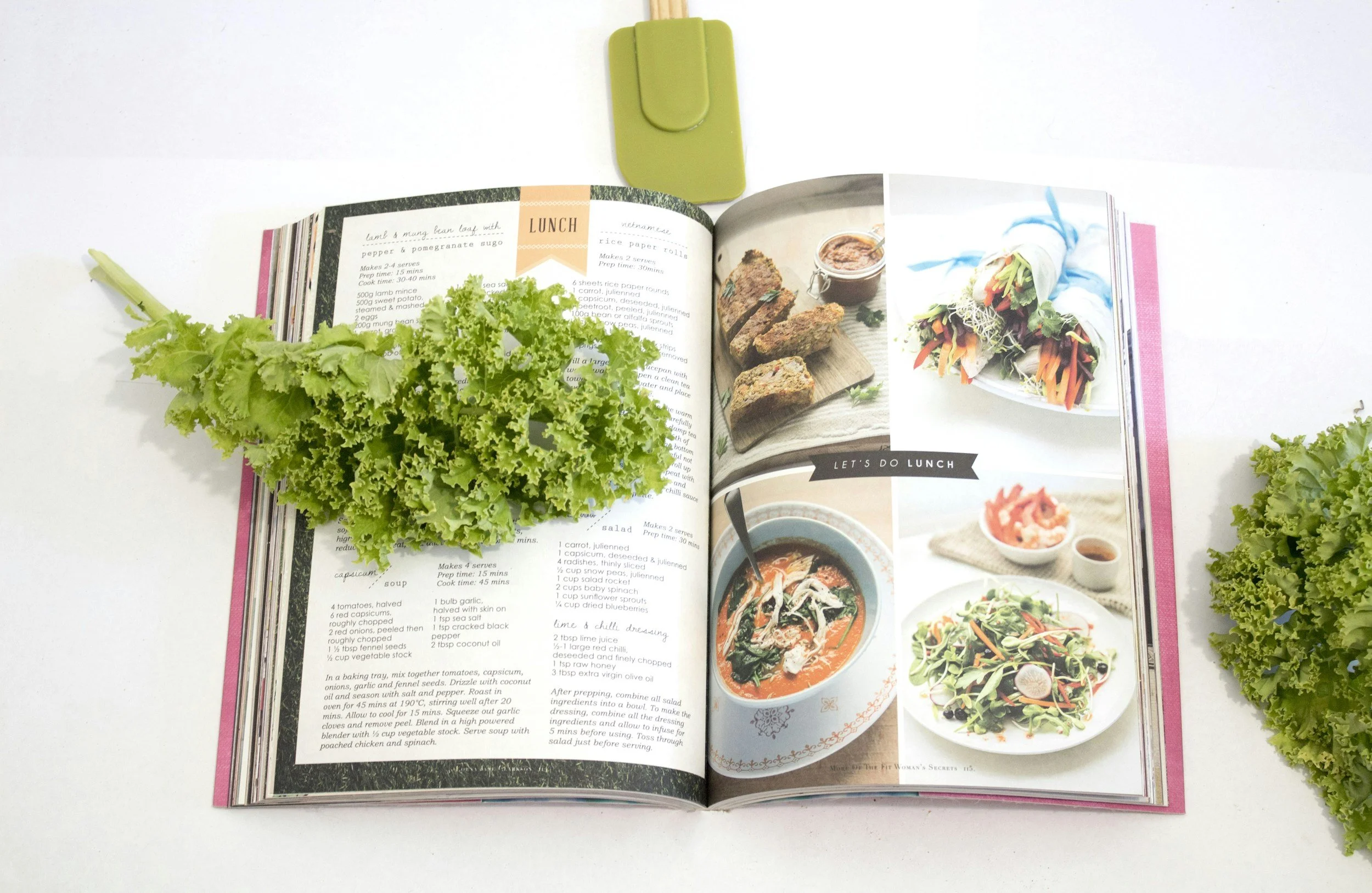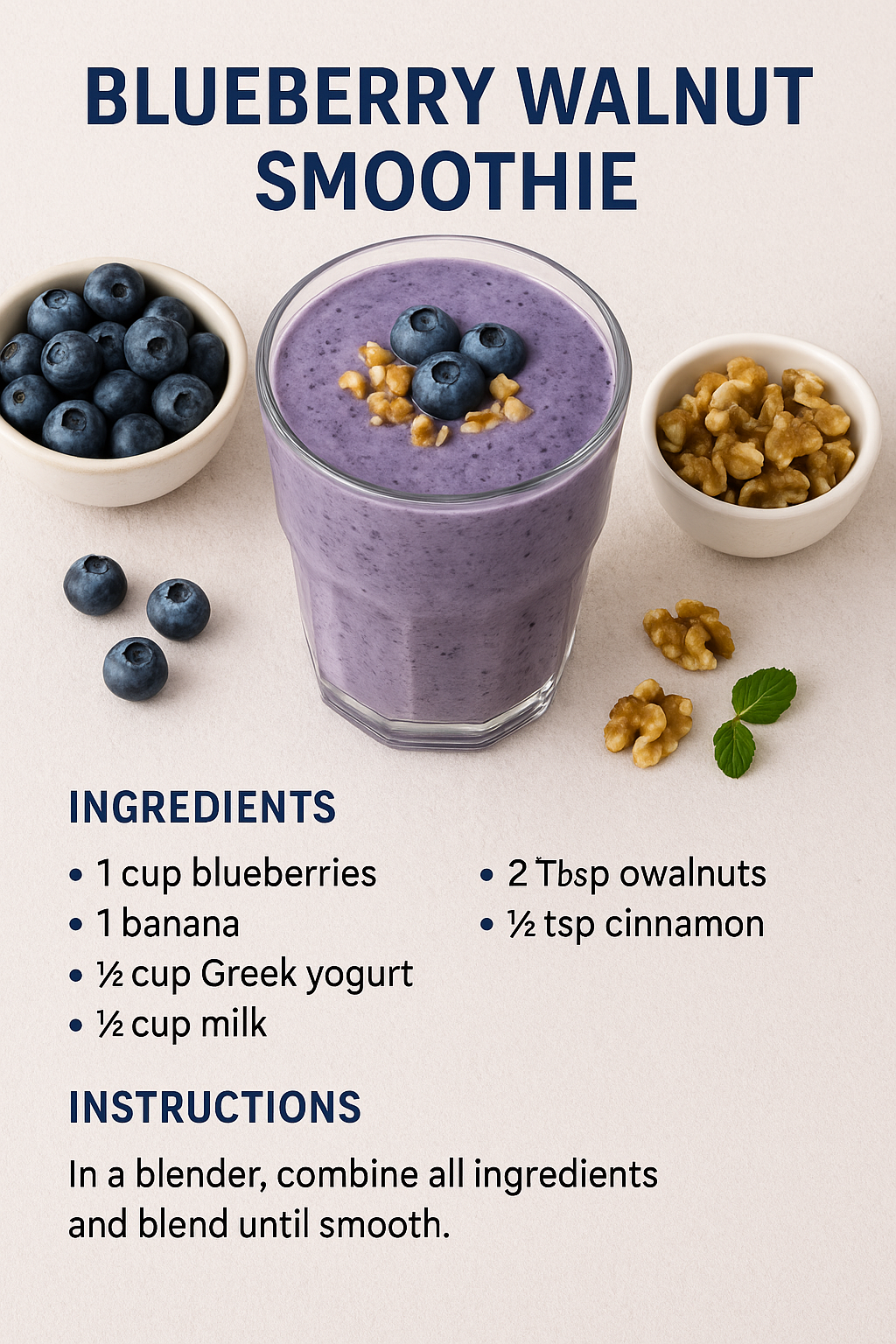10 Foods That Instantly Boost Memory According to Neuroscience
If you’ve ever walked into a room and forgotten why you were there—or blanked on a familiar name mid-conversation—you’re not alone. As a board-certified neurologist who’s performed life-saving stroke surgeries and treated tens of thousands of patients, I’ve seen firsthand how memory loss starts subtly and can escalate over time.
The good news? There’s a lot you can do to support your brain—starting with what’s on your plate.
🥗 That’s exactly why I created the Brain Good Recipe Club—to make brain-healthy eating doable, delicious, and consistent. Each month, I share 10 science-backed recipes using ingredients you’ll see below—like blueberries, walnuts, leafy greens, and turmeric.
🧠 [Join the waitlist here] and get a free sample of this month’s recipes.
Here are 10 foods, backed by neuroscience, peer-reviewed studies, and clinical experience, that can help improve memory fast and support long-term brain health—especially for women and men over 40.
1. Blueberries: The Antioxidant Powerhouse
Blueberries are rich in anthocyanins—antioxidants that cross the blood-brain barrier and accumulate in memory-related regions.
A 2024 study in Nutrients found that daily blueberry consumption improved working memory and delayed recall in older adults. The antioxidants also reduced oxidative stress and inflammation in the hippocampus.
Quick Tip: Add a handful of blueberries to your oatmeal, smoothie, or even salad.
2. Fatty Fish: Omega-3s for Cognitive Clarity
Fatty fish like salmon, sardines, and mackerel are loaded with DHA, a type of omega-3 crucial for brain structure.
According to a 2025 article in The New England Journal of Medicine by Dr. Hana Saito, omega-3 supplementation was associated with significantly improved executive function and memory scores in adults over 55.
Quick Tip: Aim for 2 servings a week. If fish isn’t your thing, talk to your doctor about high-quality omega-3 supplements.
3. Walnuts: A Brain-Shaped Brain Booster
Nature’s not-so-subtle clue—walnuts literally look like a brain, and for good reason. They’re packed with alpha-linolenic acid (ALA), a plant-based omega-3 that supports neuronal structure and signaling.
A 2025 study from the University of Reading found that daily walnut intake improved cognitive flexibility and verbal fluency in adults over 60.
Quick Tip: Snack on a handful or blend into smoothies.
🥦 Want to know how I turn these into a delicious 5-minute brain-boosting pesto?
As a neurologist who’s performed life-saving stroke surgeries, I created the Brain Good Recipe Club to help people like you make brain-healthy eating doable.
Every month, I share 10 easy, science-backed recipes using ingredients like walnuts, leafy greens, and turmeric.
🧠 [Join the waitlist here] and I’ll send you a free sample.
4. Turmeric: The Golden Spice
Curcumin, turmeric's active ingredient, has strong anti-inflammatory effects and can increase BDNF (brain-derived neurotrophic factor), essential for memory formation.
Dr. Daniel Amen often recommends turmeric in clinical protocols. A 2024 AAN abstract by Dr. Leena Patel demonstrated curcumin's positive impact on delayed verbal recall in older adults.
Quick Tip: Add it to soups, golden milk, or eggs—just pair with black pepper for better absorption.
5. Leafy Greens: Nutrient-Rich Cognitive Protectors
Spinach, kale, and Swiss chard are loaded with vitamin K, folate, lutein, and beta-carotene—all brain-loving nutrients.
A 2024 study published in Neurology linked higher leafy green intake with slower rates of cognitive decline in adults aged 58–78.
Quick Tip: Toss into smoothies, sauté with garlic, or layer into sandwiches.
6. Eggs: Choline for Neurotransmitters
Eggs are rich in choline, which is vital for making acetylcholine—a neurotransmitter critical for memory and learning.
A 2024 Nutrients study by Dr. Silvia Gomez found that older adults with higher dietary choline had stronger verbal memory and processing speed.
Quick Tip: Start your day with scrambled eggs or make a veggie-packed frittata.
👩🎓 If you’re thinking, “I know what to eat, but how do I actually make it work?”—that’s exactly why I created the Brain Good Recipe Club.
Each month, I send 10 simple, delicious recipes using ingredients like eggs, spinach, turmeric, and more—no fads, no fluff.
🧠 [Join the waitlist here] to get a free sample and make brain-healthy eating second nature.
7. Pumpkin Seeds: Magnesium & More
These tiny seeds are packed with magnesium, iron, zinc, and copper—all essential for nerve signaling, focus, and memory formation.
Magnesium in particular plays a key role in learning and synaptic plasticity.
Quick Tip: Sprinkle over yogurt, salads, or eat by the handful.
8. Dark Chocolate: Flavonoids for Focus
Dark chocolate (at least 70% cocoa) contains flavonoids that may enhance memory and reaction time.
A 2024 study in Frontiers in Aging Neuroscience found that older adults who consumed dark chocolate daily performed better on tests of attention and working memory.
Quick Tip: One square a day keeps brain fog away—just keep sugar low.
9. Green Tea: Calm Alertness
Green tea contains both caffeine and L-theanine—a unique amino acid that promotes calm but focused alertness.
This synergy improves cognitive performance, particularly in multitasking and memory.
Quick Tip: Sip in the afternoon for a gentle mental lift without the jitters.
10. Avocados: Monounsaturated Brain Fuel
Avocados support healthy blood flow and are rich in lutein, a carotenoid linked to improved cognitive performance.
A recent meta-analysis in 2025 supported the role of monounsaturated fats in preserving memory in midlife.
Quick Tip: Mash onto toast, blend into smoothies, or top salads.
✨ Before we wrap up...
If you’re reading this and wondering how to actually put these ingredients into your life without getting overwhelmed, that’s exactly what the Brain Good Recipe Club is for.
Each month I send 10 real-food, science-backed recipes using the ingredients I’ve recommended to thousands of patients.
As someone who’s been in the operating room saving brains and in clinic helping people reclaim theirs—I want to help you protect yours, one meal at a time.
🧠 [Join the waitlist here] and I’ll send you a sample this week.
Conclusion
These ten foods are more than just "healthy"—they are evidence-based, clinically recommended tools to support memory, focus, and long-term cognitive vitality.
Brain health isn’t about waiting for symptoms—it’s about protecting your most powerful asset before you need to.
Start with your next meal. Start with the foods that feed your future. And if you want a little help making it easier...
🧠 Join the Brain Good Recipe Club and take the guesswork out of brain-healthy eating.



